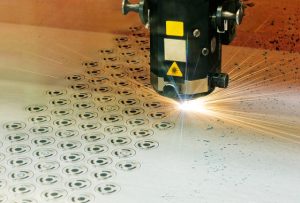Laser cutting involves introducing a high-powered beam on a material that needs to be cut through. Thereafter, it vaporizes, melts or burns the surface of the material it touches. As laser cutting is executed by using state of the art equipment, there are hardly any flaws noticed after cutting takes place. It gives high-quality finishing to the product that is cut. Although, you need to ensure that the laser machine spare parts you use for your machines are of high quality and are replaced regularly to ensure the quality of cutting is top notch.
In Spite of knowing the benefits of laser cutting, people do not go for it as they have some misconceptions about it. Let us know what myths exist and provide facts to prove them wrong.
Laser cutting is a new technology
Laser cutting isn’t something that has been introduced lately. This technology was introduced in the year 1960 and was highly embraced by manufacturers by 1980. Over the years, the technology has progressed by leaps and bounds and is used for the production of equipment belonging to every industry.
Laser cutting is complicated
This isn’t true. It is much easier as compared to other mechanical cutting technologies. Moreover, there is no need to make special preparations for cutting like sharpening the tools, deciding the placements etc. A computerized CAD file is created and the lasers are programmed to cut according to that. It is possible to change the depth of the cut by changing the power of the laser. Now this is something that you can’t accomplish with other cutters.
It will burn the materials
Burning is probably not the right term to be used for laser cutting. The process actually involves charring the surface that is being cut along. However, the best part about charring is that the edges are cut in a way that its finishing remains intact. Lasers are the best equipment when it comes to cutting through soft materials like plastic. And they don’t burn plastics or metals.
Lasers can’t cut through thick materials
A lot of people think about the James Bond movie when it comes to industrial laser cutting and form the opinion that it cannot work for their projects. It is a sheer misconception. Laser cutting can be applied to an array of materials and thicknesses. However, it has some limitations with the intensity of thickness it can cut through. Take a look at some of the materials and thicknesses it can cut through
- Wood: 1/2 — 3/4 inch
- Ceramic: Up to 1/8 inch
- Stainless steel: Up to a 1/8 inch
- Plastics: 3/16 — 1/4 inch
With so many options available for cutting, you might get confused as to what cutting technique to use. But you must know that laser cutting tops the list with its cutting quality, feasibility and accessibility. Get rid of misconceptions mentioned above and try choosing laser cutting for one of your small projects. Once you get acquainted with the quality of results you get, you will always choose this method above all.

